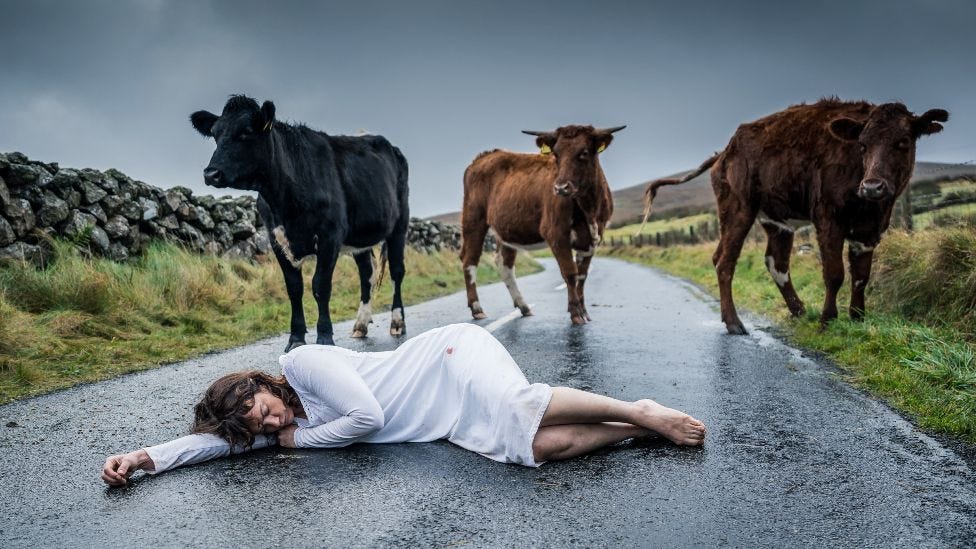A new drama about the Magdalene Laundries
Monday reading #11
Monday Reading is my weekly recommendation of something I’ve found thought-provoking or fascinating. Sometimes it is about something I have read. Sometimes it is about television or food or music or projects I care about supporting. Sometimes I do not send it on Monday. Please share with anyone who might like the vibes!!
I’m sorry to report that I have more British television to recommend. I’ve been watching The Woman in the Wall, a BBC series about the survivors of the Magdalene Laundries in Ireland; it will soon air on Showtime in the US.
It’s a crime show, by which I mean both a show about the crimes suffered by the young women and girls in the laundries & maternity homes and a show about murder. The central character is Lorna, a woman in late middle age whose parents forced her, years earlier, to give birth to a baby conceived out-of-wedlock in a convent maternity home. The baby was taken away; Lorna never saw her again. This loss made a wound that has never even closed, much less healed. Her life is a screaming symptom.
Lorna commits spectacular acts of violence when she sleepwalks. We meet her when she comes to on a country road in a nightgown, barefoot, having no idea how she got there or what happened. Once she has made her way home, she finds that she has stabbed a portion of Jesus hanging on her wall with a knife; we soon find out that she was recently in trouble with the law because she took a sledgehammer to a statue of the Virgin Mary in a church yard.
Awake, Lorna is fearful, secretive, angry, unpredictable. She is a talented seamstress, but she destroys a beautiful lace wedding gown that someone had brought in for a final fitting in a fugue state. In her small town, where there had once been a laundry and where half the women she knows are survivors, she is more or less accepted and protected. But she is always on edge, afraid to sleep at night for fear of what she might do. Deranged by sleeplessness, she hallucinates and compulsively scratches herself. In the first episode, we know, but the characters don’t (yet), that she is hiding a dead woman’s body in her house.
This revelation is framed nicely by an interaction between the Dublin detective, who soon responds to a call about a murdered priest, and his wife, who are watching Columbo when we first meet them. She calls the show a whodunit, but he points out that we see the murderer commit the crime at the beginning of each episode. It’s not a whodunit. But this show is: many people in the story cannot or will not admit what they have done, even if these things are open secrets. “There’s knowing and there’s knowing,” the small town cop says to the big city police officer who doesn’t understand all of these silences.
it’s also mordantly funny and beautifully made. There’s a great effect with the music at the credits fade in at the end of the first episode & the aural and visual effects of Lorna’s grief-fueled derangement are beautifully done. Lorna is played by Ruth Wilson, and here you can see parts of other characters she’s played—Marisa Coulter, Alice Morgan—but Lorna’s pain is its own expression. There’s obviously a lot more to say—it’s incredibly rich—but I’ll save that for you to see for yourself.
It’s interesting that the story will air in the United States—lots of British shows obviously don’t. Lately conversations about adoption’s violence have become more public, and domestic and international adoptions in this country are fraught for their own reasons with their own histories. It’s easy enough to refuse any connections between the story and what has happened here in the US; the role of the Catholic Church and the laundries in all of it makes the context different. But I suspect there are some broad similarities.
Thanks, as always, for reading; if you’re a paid subscriber, please know that it makes a great deal of difference in my life.
See you next week!


